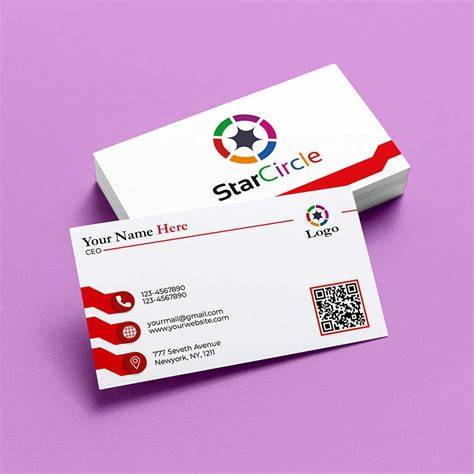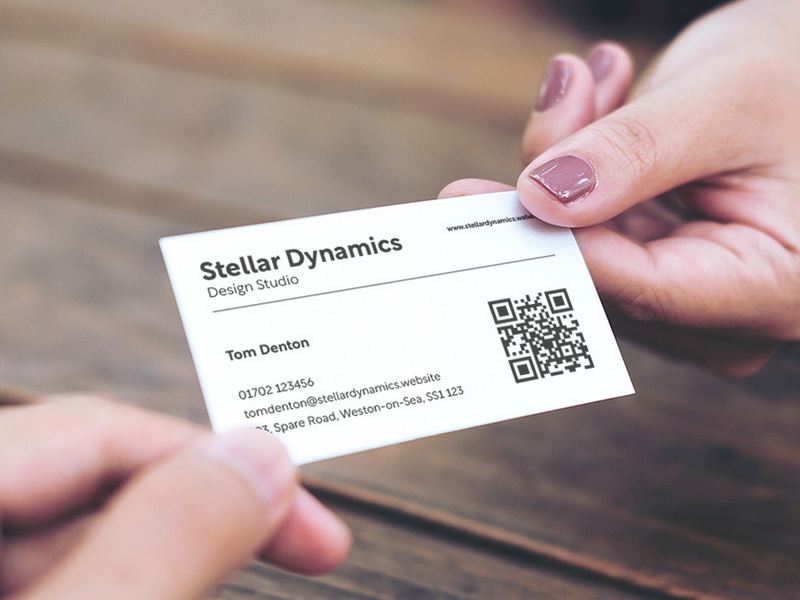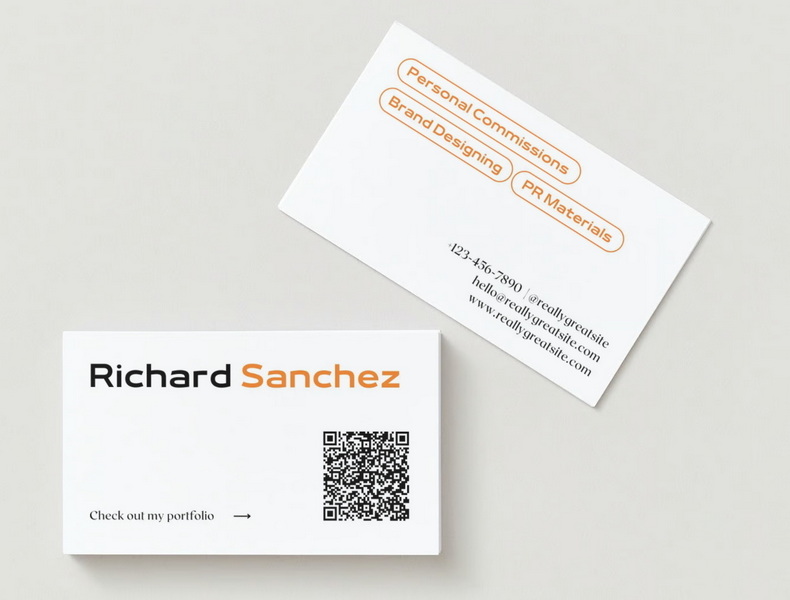Content Menu
● What is a Digital Business Card?
● Benefits of Digital Business Cards
● Steps to Create Your Digital Business Card
>> Step 1: Choose a Platform
>> Step 2: Sign Up or Log In
>> Step 3: Select a Template
>> Step 4: Fill in Your Information
>> Step 5: Customize Your Design
>> Step 6: Add Interactive Elements
>> Step 7: Save and Share Your Card
● Best Practices for Designing Digital Business Cards
● Additional Features to Consider
>> Integration with Contact Management Systems
>> Analytics Tracking
>> Custom Domains
>> Multi-Language Support
● How to Promote Your Digital Business Card
>> Networking Events
>> Email Signatures
>> Social Media Profiles
>> Personal Website or Blog
● Conclusion
● Frequently Asked Questions
>> 1. How do I create a digital business card?
>> 2. What information should I include on my digital business card?
>> 3. Can I update my digital business card later?
>> 4. How can I share my digital business card?
>> 5. Are digital business cards secure?
● Citations:
In today's fast-paced and increasingly digital world, traditional paper business cards are becoming less relevant. Digital business cards are a modern solution that not only reduces waste but also offers enhanced functionality and convenience. This article will guide you through the process of creating your own digital business card, exploring the various tools available, best practices for design, and how to effectively share your card with others.

What is a Digital Business Card?
A digital business card is an electronic version of a traditional business card. It typically contains the same information, such as your name, job title, company name, contact details, and website address. However, it also allows for more interactive features like links to social media profiles, videos, and even QR codes that can be scanned for easy access to your information. Digital business cards can be shared via email, text messages, or social media platforms and can be stored on smartphones or digital wallets like Apple Wallet and Google Pay.
Benefits of Digital Business Cards
- Eco-Friendly: Reduces paper waste associated with traditional cards.
- Convenience: Easily updated with new information without needing to reprint.
- Enhanced Features: Can include multimedia elements like videos and links to online portfolios.
- Cost-Effective: Eliminates printing costs associated with physical cards.
- Instant Sharing: Quickly share your information through QR codes or NFC technology.
Steps to Create Your Digital Business Card
Creating a digital business card can be done in just a few steps. Here's a comprehensive guide:
Step 1: Choose a Platform
There are numerous platforms available for creating digital business cards. Some popular options include:
- Uniqode: Offers customizable templates and analytics features.
- HiHello: User-friendly app with free and premium options.
- Canva: Great for those who want to design their cards from scratch using a variety of templates.
Choose a platform that suits your needs based on features, ease of use, and pricing.
Step 2: Sign Up or Log In
Once you've chosen a platform, create an account or log in if you already have one. Most platforms will guide you through the setup process.
Step 3: Select a Template
Most digital card platforms offer pre-designed templates that you can customize. Choose one that aligns with your personal or company branding. Consider the layout carefully; it should facilitate easy reading and navigation.
Step 4: Fill in Your Information
Enter essential details such as:
- Name
- Job Title
- Company Name
- Contact Information (phone number, email)
- Website URL
- Social Media Links
Make sure all information is accurate and up-to-date. This step is crucial as it reflects your professionalism.
Step 5: Customize Your Design
Customize the look of your card to reflect your brand identity. This includes selecting colors, fonts, and images (like your logo or headshot). Keep the design simple and professional; avoid cluttering the card with too much information.
Step 6: Add Interactive Elements
Consider adding interactive features such as:
- QR Codes: Allow recipients to scan and save your contact details easily.
- NFC Technology: Enables sharing by simply tapping phones together.
- Videos or Presentations: Link to a short video introduction about yourself or your services.
These elements not only enhance user engagement but also provide more context about who you are and what you do.
Step 7: Save and Share Your Card
After customizing your card, save it. Most platforms will provide you with options for sharing:
- Via email
- Text message
- Social media
- QR code
- NFC tap
Make sure to test the sharing options to ensure they work seamlessly.

Best Practices for Designing Digital Business Cards
To ensure your digital business card stands out and effectively communicates your brand, consider these best practices:
- Keep It Simple: Avoid clutter; focus on essential information.
- Use High-Quality Images: Ensure any images used are high-resolution for a professional appearance.
- Consistent Branding: Align colors and fonts with your overall brand identity.
- Mobile-Friendly Design: Ensure your card looks good on both desktop and mobile devices.
Additional Features to Consider
While the basics of a digital business card are straightforward, there are additional features that can make yours even more effective:
Integration with Contact Management Systems
Many platforms allow integration with CRM systems. This means that when someone saves your card, their contact management software can automatically capture all relevant details. This feature is especially beneficial for sales professionals who rely heavily on networking.
Analytics Tracking
Some digital business card services offer analytics tracking. You can see how many times your card has been viewed or shared. This data can help you understand which aspects of your networking efforts are most effective.
Custom Domains
For those serious about branding, consider using a custom domain for your digital business card. Instead of using a generic link provided by the platform, having a personalized URL (e.g., www.yourname.com) adds professionalism and makes it easier for people to remember how to find you.
Multi-Language Support
If you work in an international environment or frequently network with people from different countries, consider using a platform that supports multiple languages. This feature allows you to create versions of your card in different languages, making it easier for diverse audiences to connect with you.
How to Promote Your Digital Business Card
Creating a beautiful digital business card is just the first step; promoting it effectively is equally important. Here are some strategies:
Networking Events
When attending networking events or conferences, make sure to have your digital business card ready to share. You could even display it on your phone's lock screen for quick access.
Email Signatures
Include a link to your digital business card in your email signature. This way, every time you send an email, you're promoting yourself without being overly pushy.
Social Media Profiles
Add links to your digital business card on all social media profiles where appropriate. Platforms like LinkedIn are ideal for this kind of promotion since they cater specifically to professional networking.
Personal Website or Blog
If you have a personal website or blog, dedicate a section where visitors can view or download your digital business card easily. This adds another layer of accessibility for potential clients or collaborators.
Conclusion
Digital business cards are an innovative way to network in today's digital age. They offer numerous advantages over traditional paper cards, including ease of sharing, eco-friendliness, and the ability to include interactive elements. By following the steps outlined above and adhering to best practices for design, you can create an effective digital business card that enhances your professional presence while promoting sustainability.

Frequently Asked Questions
1. How do I create a digital business card?
To create a digital business card, choose a platform like Uniqode or HiHello, sign up or log in, select a template, fill in your details, customize the design, add interactive elements if desired, then save and share it.
2. What information should I include on my digital business card?
Include essential details such as your name, job title, company name, contact information (phone number and email), website link, and social media profiles.
3. Can I update my digital business card later?
Yes! One of the main advantages of digital business cards is that you can easily update them whenever necessary without reprinting.
4. How can I share my digital business card?
You can share it via email, text message, social media platforms, QR codes, or NFC technology.
5. Are digital business cards secure?
Digital business cards can be secure if created on reputable platforms that use encryption and privacy measures to protect user data.
Citations:
[1] https://www.uniqode.com/blog/digital-business-card-basics/how-to-create-a-digital-business-card
[2] https://samanthabrandon.com/best-digital-business-card
[3] https://www.nexalink.co/blog/digital-business-cards-essential-features-and-best-practices/
[4] https://www.doorway.io/blog/what-is-a-digital-business-card/
[5] https://www.qrcodechimp.com/Best-Practices-Sharing-Receiving-Digital-Business-Cards/
[6] https://www.doorway.io/blog/step-by-step-guide-for-how-to-make-a-digital-business-card-2024-edition/
[7] https://www.misaias.com/best-digital-business-card/
[8] https://www.cardtapp.com/blog/the-ultimate-guide-to-the-best-digital-business-cards/
[9] https://www.linkedin.com/pulse/7-top-things-consider-when-choosing-digital-business-card
[10] https://www.qrcodechimp.com/digital-business-card-guide/
[11] https://blinq.me/blog/what-you-need-to-know-about-a-digital-business-card
[12] https://blinq.me/solutions/digital-business-card
[13] https://www.softforge.co.uk/blogs/all-topics/how-to-create-an-impressive-digital-business-card-tips-and-best-practices
[14] https://www.youtube.com/watch?v=QNxjdEC0zDQ
[15] https://www.adobe.com/express/create/business-card/virtual
[16] https://www.qrcodechimp.com/qr-code-business-card/best-practices/
[17] https://www.youtube.com/watch?v=Q3iUhvnrB1E
[18] https://www.designhill.com/digital-business-card
[19] https://www.site123.com/learn/creating-digital-cards-for-different-industries-best-practices
[20] https://spreadly.app/en/blog/create-a-digital-business-card-in-5-steps-16
[21] https://personifycorp.com/blog/a-guide-to-digital-business-cards-in-2023/
[22] https://www.linkedin.com/pulse/art-digital-business-card-best-practices-modern-benjamin-claeys-d8fyc
[23] https://www.qrcode-tiger.com/digital-business-card-statistics
[24] https://www.joinsocialcard.com/post/how-do-digital-business-cards-work
[25] https://www.qrcodechimp.com/information-on-digital-business-card/
[26] https://thehaystackapp.com/blog/digital-business-cards-best-practice
[27] https://support.microsoft.com/en-us/office/create-and-share-contacts-as-electronic-business-cards-da84e482-47f5-4be0-ae75-d31ac04f9e04
































